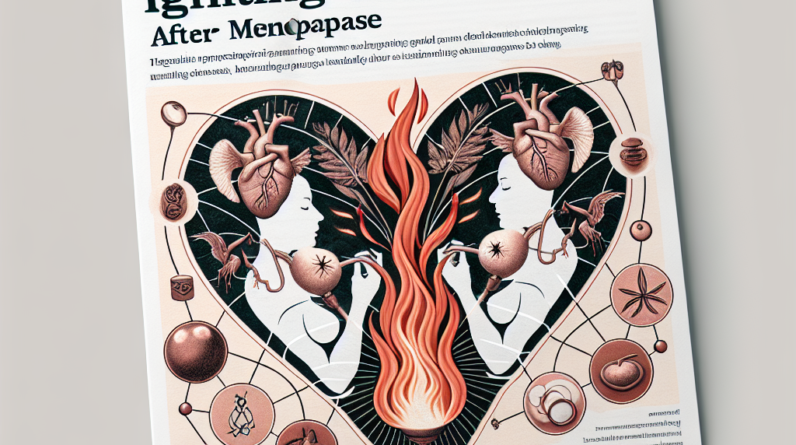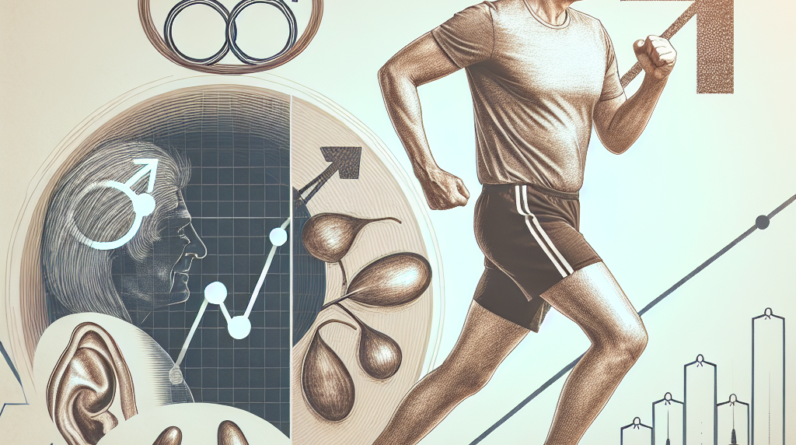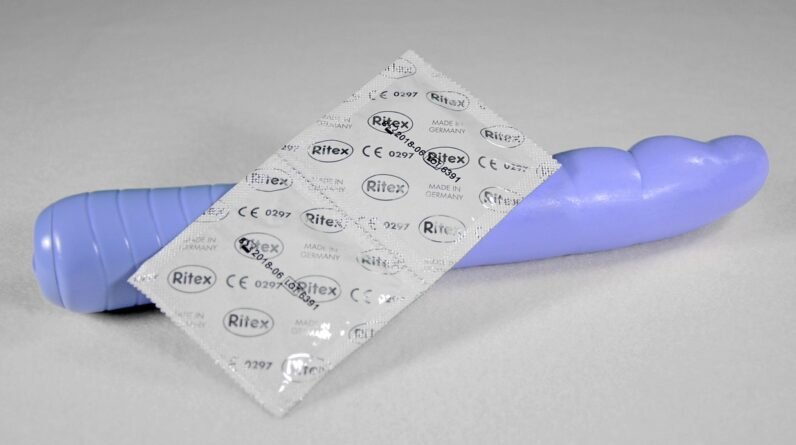
If you’ve been wondering about your sex drive after menopause, we have some insights for you. Exploring the possibility of reigniting your passion in the bedroom during this stage of life is a topic that many individuals find intriguing. From tips on maintaining an enjoyable sex life as you grow older to the question of whether your sex drive reemerges after menopause, we’ll provide you with helpful information to navigate these changes and enhance your overall sexual well-being.
Changes in sexual desire during menopause
Fluctuating hormone levels
During menopause, you may experience changes in your sexual desire due to fluctuating hormone levels. As estrogen and progesterone levels decline, it can affect your sexual function and desire. These hormonal changes can lead to vaginal dryness, decreased blood flow to the genitals, and a decrease in libido. Understanding these changes can help you better navigate and address any concerns you may have.
Physical and emotional factors
In addition to hormonal changes, physical and emotional factors can also impact your sexual desire during menopause. Physical factors such as fatigue, pain during intercourse, and other menopausal symptoms can affect your willingness and ability to engage in sexual activities. Similarly, emotional factors like stress, anxiety, and mood swings can also influence your sexual desire. It’s important to recognize and address these factors to maintain a healthy and fulfilling sex life.
Medical conditions and medications
Certain medical conditions and medications can contribute to changes in sexual desire during menopause. Conditions such as diabetes, cardiovascular disease, and depression can affect your libido and sexual function. Additionally, medications used to treat these conditions, as well as some antidepressants and blood pressure medications, can have side effects that impact your sexual desire. If you suspect that a medical condition or medication is affecting your sex drive, it’s important to discuss this with your healthcare provider.
Understanding menopause
Definition of menopause
Menopause is a natural biological process that marks the end of reproductive years for women. It is typically defined as the absence of menstruation for twelve consecutive months. Menopause usually occurs between the ages of 45 and 55, with an average age of around 51. It is an important milestone in a woman’s life, and it is important to understand the various changes and symptoms that can accompany this stage.
Common symptoms of menopause
Menopause is often associated with a range of symptoms, including hot flashes, night sweats, mood swings, and changes in sexual desire. Hot flashes are sudden feelings of intense heat that can cause sweating and a flushed appearance. Night sweats are similar to hot flashes but occur during sleep, leading to disrupted sleep patterns. Mood swings and changes in sexual desire can also be common during this time. Recognizing these symptoms can help you better manage and cope with the changes that accompany menopause.
Effects on sexual function
Menopause can have various effects on sexual function. The decline in estrogen levels can lead to vaginal dryness, which can cause discomfort or pain during intercourse. Reduced blood flow to the genital area can also impact sexual arousal and sensitivity. Additionally, changes in hormone levels can affect the strength and frequency of orgasms. It is important to address these changes and find ways to maintain sexual satisfaction and intimacy during this stage of life.

Factors that can affect sex drive after menopause
Hormonal changes
Hormonal changes are a significant factor that can affect sex drive after menopause. As estrogen levels decline, it can lead to a decrease in libido and vaginal dryness. However, it’s important to note that not all women experience a decrease in sex drive after menopause. Some may find that their sex drive remains unchanged, while others may even experience an increase in desire. Every woman is different, and it is important to understand and embrace your individual experience.
Psychological factors
Psychological factors can also impact sex drive after menopause. Stress, anxiety, depression, and changes in body image can all play a role in affecting sexual desire. It’s essential to address any psychological factors that may be inhibiting your sex drive and seek support from a therapist or counselor if needed. By addressing these factors, you can foster a healthier mindset and improve your overall sexual well-being.
Physical health and aging
Physical health and the aging process can affect sex drive after menopause. Chronic health conditions such as diabetes, cardiovascular disease, and arthritis can impact sexual function and desire. Additionally, changes in body composition, such as weight gain or loss and muscle loss, can affect self-esteem and body image, which may influence sexual desire. Taking care of your physical health through regular exercise, a balanced diet, and regular check-ups can help maintain optimal sexual well-being.
Relationship issues
Relationship issues can also play a role in sex drive after menopause. Changes in sexual desire can lead to feelings of frustration, guilt, or resentment between partners. It’s important to communicate openly and honestly with your partner about any changes or concerns you may have. By fostering a supportive and understanding relationship, you can find ways to navigate these changes together and maintain a satisfying and fulfilling sex life.
Lifestyle choices
Lifestyle choices, such as smoking, excessive alcohol consumption, and poor sleep habits, can impact sex drive after menopause. Smoking and excessive alcohol consumption can have negative effects on sexual function and overall health. Poor sleep habits can lead to fatigue and reduced energy levels, which can affect sexual desire. Making positive lifestyle choices, such as avoiding smoking, moderating alcohol intake, and prioritizing sleep, can contribute to improved sexual well-being.
Hormone replacement therapy (HRT)
Overview of HRT
Hormone replacement therapy (HRT) is a treatment option for menopausal symptoms that involves taking medications to replace the hormones that your body is no longer producing in sufficient amounts. Estrogen and progesterone are the hormones typically used in HRT. It can help alleviate symptoms such as hot flashes, night sweats, and vaginal dryness. HRT comes in different forms, including pills, patches, creams, gels, and vaginal rings.
How it can impact sex drive
HRT can potentially impact sex drive by replenishing hormone levels and addressing the physical changes that occur during menopause. By increasing estrogen levels, it can help alleviate vaginal dryness and improve blood flow to the genital area, which can contribute to increased sexual desire and pleasure. However, it’s important to note that HRT may not work the same way for everyone, and individual responses can vary.
Potential benefits and risks
HRT can offer a range of potential benefits for women experiencing menopause symptoms, including improved sexual function and desire. It can also help reduce the risk of osteoporosis and colorectal cancer. However, HRT also carries risks, such as an increased risk of breast cancer, blood clots, stroke, and heart disease. It’s important to discuss the potential benefits and risks of HRT with your healthcare provider to determine if it is the right option for you.

Non-hormonal treatment options
Vaginal moisturizers and lubricants
Vaginal moisturizers and lubricants can be used to address vaginal dryness, a common symptom of menopause. Moisturizers are applied regularly to the vaginal area to provide moisture and relieve dryness. Lubricants, on the other hand, are used during sexual activity to reduce friction and discomfort. Both options can enhance comfort and pleasure during intercourse.
Topical estrogen therapies
Topical estrogen therapies are another non-hormonal treatment option for menopause symptoms. These therapies involve applying estrogen directly to the vaginal area in the form of creams, rings, or tablets. They can help relieve vaginal dryness, improve elasticity, and enhance sexual function. Topical estrogen therapies have minimal systemic absorption, meaning they have a localized effect and carry fewer risks than systemic hormone therapies.
Testosterone replacement therapy
Testosterone replacement therapy is sometimes used in women experiencing low libido during menopause. Although primarily known as a male hormone, women also produce testosterone, and it plays a role in sexual desire and function. Testosterone replacement therapy can potentially improve libido and sexual satisfaction in women with low testosterone levels. However, it’s important to note that the long-term effects of testosterone replacement therapy in women are not well established, and the safety and efficacy of this treatment option may vary.
Psychological interventions
Counseling and therapy
Counseling and therapy can be valuable tools for addressing psychological factors that may be affecting your sexual desire during menopause. Talking to a therapist or counselor can help you explore any underlying issues, such as stress, anxiety, or relationship concerns, and develop strategies to address them. This can lead to improved emotional well-being, self-confidence, and sexual satisfaction.
Mindfulness and meditation
Mindfulness and meditation practices can help reduce stress, improve self-awareness, and enhance overall well-being. Engaging in mindfulness exercises and meditation techniques can help you focus on the present moment and cultivate a sense of calm and relaxation. By reducing stress and promoting a positive mindset, mindfulness and meditation can contribute to increased sexual desire and satisfaction.
Stress management techniques
Managing stress is a crucial aspect of maintaining a healthy sex drive after menopause. Engaging in stress management techniques such as deep breathing exercises, yoga, or regular physical activity can help alleviate stress and promote relaxation. It’s important to prioritize self-care and find activities that help you unwind and find balance in your daily life.
Maintaining a healthy lifestyle
Exercise and physical activity
Regular exercise and physical activity are important not only for overall health but also for sexual well-being. Engaging in aerobic exercises, strength training, or activities that you enjoy can increase blood flow, boost energy levels, and improve mood. Physical activity can also enhance body image and self-confidence, which can positively impact sexual desire.
A balanced diet
Maintaining a balanced diet is important for overall health, including sexual well-being. Nutrient-rich foods, such as fruits, vegetables, whole grains, lean proteins, and healthy fats, provide the necessary nutrients for optimal bodily function. Additionally, certain foods, such as those high in antioxidants and omega-3 fatty acids, may have specific benefits for sexual health. It’s important to consult with a healthcare provider or nutritionist to develop a personalized diet plan that suits your needs.
Managing stress and anxiety
Reducing stress and anxiety is crucial for maintaining a healthy sex drive during menopause. Engaging in stress-reducing activities, such as exercise, relaxation techniques, and hobbies, can help alleviate stress and promote a positive mindset. Additionally, practicing good time management and setting realistic expectations for yourself can also contribute to a more balanced and stress-free lifestyle.
Getting enough sleep
Adequate sleep is essential for overall well-being, including sexual function. Poor sleep can lead to fatigue and reduced energy levels, which can impact sexual desire. It’s important to prioritize good sleep hygiene and establish a consistent sleep routine. Creating a comfortable sleep environment, avoiding caffeine and electronics before bed, and practicing relaxation techniques can help promote restful sleep.
Avoiding smoking and excessive alcohol consumption
Smoking and excessive alcohol consumption can have negative effects on sexual function and overall health. Smoking can reduce blood flow, including to the genital area, which can affect sexual sensation and desire. Similarly, excessive alcohol consumption can impair sexual function and decrease libido. Quitting smoking and moderating alcohol intake can contribute to improved sexual well-being.
Communication and intimacy in relationships
Open and honest communication
Open and honest communication with your partner is essential for maintaining a satisfying and fulfilling sex life after menopause. Discussing any changes or concerns you may have can help both partners understand and support each other. Sharing your desires, fantasies, and preferences can also enhance intimacy and sexual satisfaction.
Exploring new sexual experiences
Menopause can be an opportunity to explore new sexual experiences and discover what works best for you and your partner. Experimenting with different techniques, positions, and intimate activities can enhance sexual pleasure and rekindle desire. Communication and consent are key when exploring new experiences, ensuring that both partners feel comfortable and respected.
Building emotional intimacy
Building emotional intimacy is crucial for maintaining a healthy and fulfilling sex life after menopause. Emotional connection, trust, and intimacy can enhance sexual desire and satisfaction. Spending quality time together, engaging in activities that foster emotional closeness, and expressing love and affection can help strengthen the emotional bond between partners.
Supporting each other through changes
Both partners should support and understand each other as they navigate the changes that come with menopause. It’s important to recognize that menopause is a natural part of life and that everyone’s experience is unique. Providing emotional support, being patient and understanding, and offering reassurance can help both partners adjust and maintain a positive and fulfilling sex life.
Tips for improved sexual well-being after menopause
Educating yourself about menopause
Educating yourself about menopause and its impact on sexual well-being can help you better understand and address any changes or concerns you may have. Reading articles, books, or attending educational seminars can provide valuable information and guidance. By empowering yourself with knowledge, you can make informed decisions about your sexual health and well-being.
Experimenting with new techniques and positions
Menopause can be an opportunity to explore new techniques and positions that may enhance sexual pleasure and satisfaction. Experimenting with different techniques, positions, and even incorporating sex toys or aids can add variety and excitement to your sex life. Open communication, consent, and mutual exploration are essential when trying new things.
Using sexual aids and toys
Sexual aids and toys can be beneficial for women experiencing changes in sexual desire or function during menopause. Vibrators, lubricants, and other aids can enhance sexual pleasure, alleviate vaginal dryness, and increase sensitivity. It’s important to choose products that are safe, comfortable, and suit your individual needs. Exploring the wide range of sexual aids and toys available can help you find what works best for you.
Prioritizing self-care and self-love
Prioritizing self-care and self-love is crucial for overall well-being and sexual satisfaction. Taking care of your physical and mental health, engaging in activities that bring you joy, and practicing self-compassion are important aspects of maintaining a healthy sex drive. By prioritizing self-care, you are nurturing your own well-being, which positively impacts all areas of your life, including your sexual well-being.
Seeking professional help if needed
If you are experiencing significant changes in sexual desire or function and find it challenging to cope, seeking professional help can be beneficial. Consulting with a healthcare provider, sex therapist, or counselor specialized in menopause and sexual health can provide guidance, support, and potential treatment options. These professionals can help you navigate the changes and challenges of menopause, ensuring that you receive the support and care you need.
Conclusion
Menopause is a natural part of a woman’s life journey, and it can bring about changes in sexual desire and function. Understanding the factors that can affect sex drive during menopause, such as fluctuating hormone levels, physical and emotional factors, medical conditions, and medications, is essential for maintaining a healthy and fulfilling sex life. Hormone replacement therapy, non-hormonal treatment options, psychological interventions, and the adoption of a healthy lifestyle can all play a role in enhancing sexual well-being after menopause. Open communication, intimacy in relationships, and prioritizing self-care and self-love are also crucial aspects of maintaining a satisfying sex life during this stage of life. Remember, everyone’s experience of menopause is unique, and it’s important to embrace these changes and find what works best for you.





